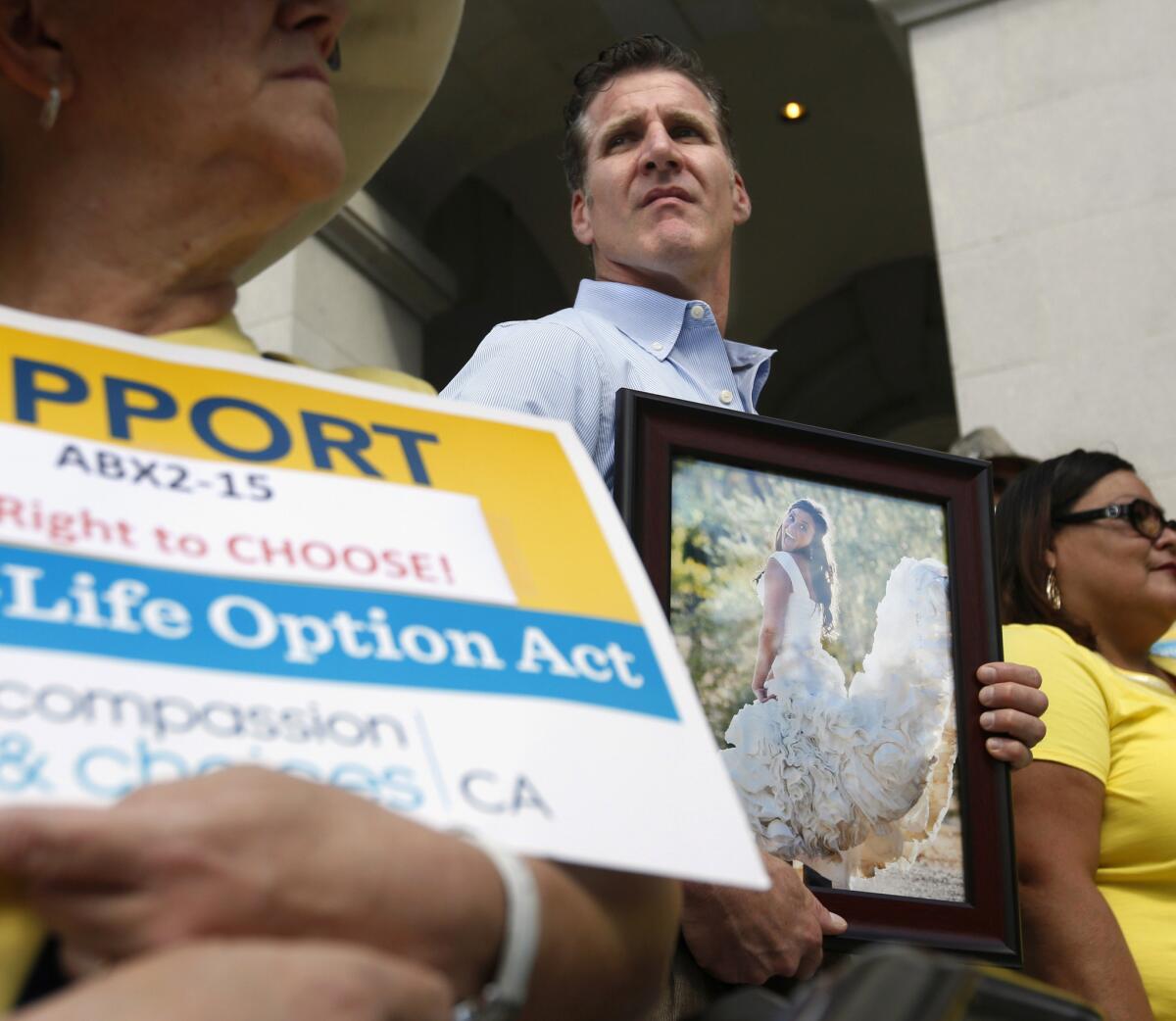California voters overwhelmingly support end-of-life law, poll finds

Dan Diaz holds a photo of his late wife, Brittany Maynard, during a rally in September in favor of the End of Life Option Act in Sacramento. A majority of California voters support the measure, according to a new poll. Gov. Jerry Brown signed it into law on Monday.
- Share via
Reporting from Sacramento — California voters overwhelmingly support a new state law that allows physicians to prescribe life-ending drugs to the terminally ill under certain conditions, according to a new poll.
Support for the End of Life Option Act, signed by Gov. Jerry Brown on Monday, cut across all political party and ethnic lines, and varied little among genders and age groups. Among the voters polled, 65% favored the law compared with 28% who opposed.
California Catholics also supported the new law, by a margin of 55% in support and 40% opposed, despite the church’s strong objections to a measure it labeled “assisted suicide.”
The only group from which more opposed the aid-in-dying act were born-again Christians, with 50% objecting to the law and 41% supporting the measure, according to the poll.
The new law is modeled after one that went into effect in 1997 in Oregon. The California law will permit physicians to provide lethal prescriptions to mentally competent adults who have been diagnosed with a terminal illness and face the expectation that they will die within six months.
The proposal gained momentum after Californian Brittany Maynard, 29, moved to Oregon last year so she could end her life with drugs to avoid the debilitating effects of brain cancer. Her case was covered nationwide, and in a videorecorded appeal before her death Maynard urged California lawmakers to pass the assisted-death legislation.
The law will take effect 90 days after the Legislature adjourns its special session on healthcare, which may not be until next year.
Similar bills had failed in the Legislature in 2005 and 2007, and California voters rejected a 1992 proposal that would have allowed physicians to administer lethal injections to their patients.
Californians have supported allowing some form of physician-assisted suicide for the terminally ill for more than 35 years, according to Field Polls taken over that time. In 1979, the proposal was supported by 64% of voters polled compared to 27% who opposed. Support has steadily increased since that time.
The latest Field Poll surveyed 1,002 registered voters in California from Sept. 17 through Sunday. The survey’s maximum margin of potential sampling error was plus or minus 4.5 percentage points.
ALSO:
How assisted suicide will work in California
Gov. Brown signs bill aimed at eliminating gender wage gap
Jerry Brown turned to his own doctor and Desmond Tutu in assisted-suicide decision
More to Read
Sign up for Essential California
The most important California stories and recommendations in your inbox every morning.
You may occasionally receive promotional content from the Los Angeles Times.











